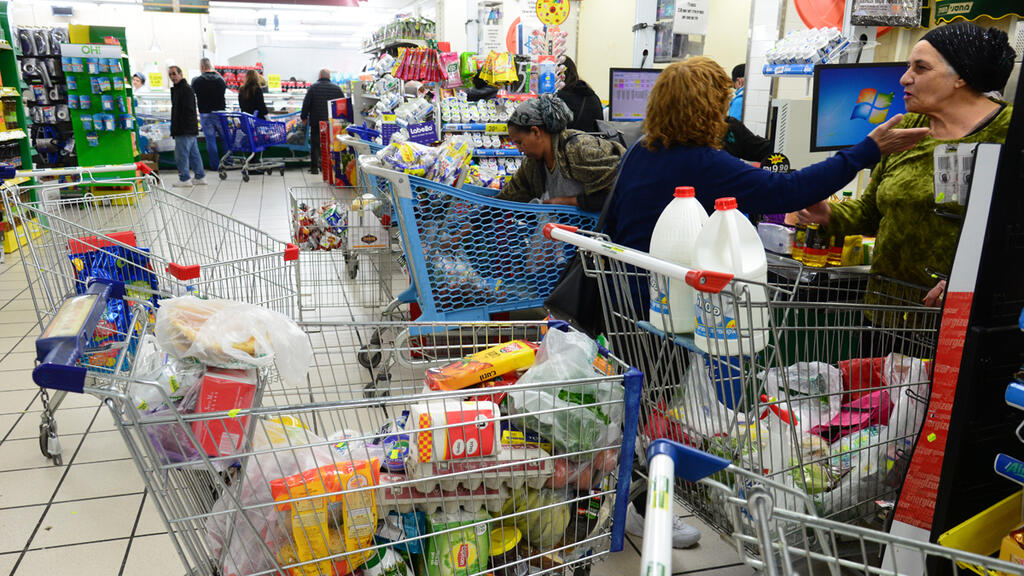We've seen this movie before, but it hurts every time: Israeli consumers will once again fee the wave of price increases in their pockets near the holidays. A series of variables have combined to make our holiday meals less exciting, certainly when it comes to the skyrocketing costs of the products on the shelves in the large supermarket chains.
Read more:
Take, for example, the rice crisis in India. All over the world there is a growing fear of a severe shortage of this important product, which will certainly lead to a dramatic price increase, after the dramatic restrictions imposed by India on the export of rice.
India, the world's largest exporter of rice, controls about 40% of the world market share of rice, and last year exported 7.4 million tons of rice. It first surprisingly announced a month ago that it was banning the export of all white, non-basmati rice that consumers in the poorer countries of Asia and Africa often buy.
India restricted exports after heavy rains damaged the crop during the past year and caused a very significant output problem in the huge country.
A few days ago, India added another major restriction and imposed a 20% tariff on rice exports, a move that will most likely further reduce shipments of the world's largest exporter and lead to a spike in rice prices. Reuters news agency reported three days ago that rice prices are currently trading at record-high prices.
India is not Israel's number one go-to for rice imports, because - with the exception of the basmati variety – Indian rice considered to be of lower quality. Most of the imports to Israel are made from Thailand, but due to the global shortage prices in Thailand have also risen. In the meantime, the Israeli importers are still basing prices on the old stocks that will be enough for the next month or two, but after that they will pay the suppliers abroad the new prices.
"Since India shut down exports, prices have increased by $150 per ton. Our luck is that there are still stocks at previous prices, but we had to purchase new shipments at the higher price," according to Eli Hamma, owner of the Hamma company, a large food importer.
But rice is not the only commodity. The ravages of the extreme climate - storms, fires, serious drought and floods that the world has recently experienced - which damaged the agricultural crops, plus the sharp jump in the dollar and euro rates which have been a unique blow to the Israeli consumer since the beginning of the year, make our shopping basket an even more complex task for households. It is indeed expected that the price increases will take place after the holidays since the preparations and pricing for the holiday promotions by the food chains begin weeks before the holidays and have already been determined. The retailers, for their part, promise that there will be no price increases for the holiday.
Olive oil is also experiencing extreme price increases all over the world. Spain, which is responsible for 50% of the world's production, experienced a bad olive harvest season as a result of global warming. The market for this product has experienced extreme price increases of up to 60%. In preparation for the holidays, the state announced duty-free tenders for the import of honey and olive oil for those who bid at a discount on the price. The tender was won by retailers who offered olive oil at a price of between 11 shekels and 13 shekels per liter instead of 30 shekels. So that for the coming holiday the price of the oil will be reasonable, but it is a limited quantity that will only be enough for the holidays..
'How will we get through the holidays'
Miko and Nicole Shimon from Netanya, parents of two children, 6-and-a-half-year-old Noam and 12-and-a-half-year-old Daniel, are having a hard time dealing with the situation. Miko is a freelance communications technician and Nicole is currently unemployed. Together they describe this the complex period:
"It's ridiculous, after spending a lot of money in July and August on summer vacation when the children are at home without a routine, which led to spending on summer camps and entertainment, we very quickly found ourselves taking a loan of 14,000 shekels. Now, just before the holidays, it is impossible that our purchases are going to be more expensive The basic foods like sugar, rice and olive oil. How far will we go with the crazy cost of living here. Something has to stop the speeding train already, how will we get through the holiday meals?"


